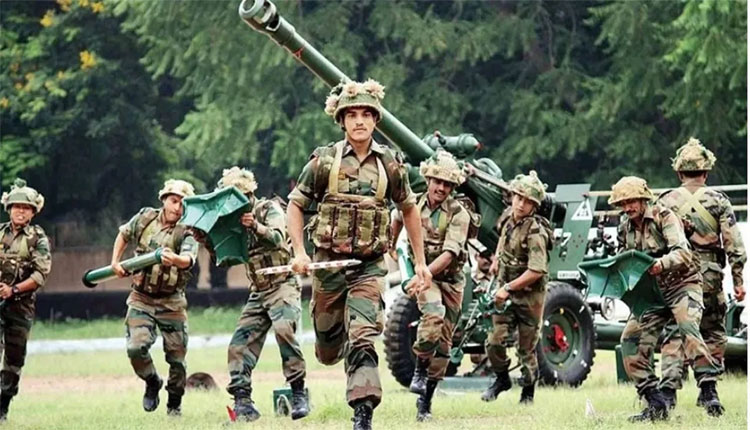New Delhi: The controversial Agnipath recruitment model, introduced two years ago to maintain a youthful and combat-ready military, will not undergo any changes, according to government officials. The scheme, which has faced considerable opposition, particularly from political parties and youth across the country, is central to India’s strategic defence against its adversaries, especially China. Any modifications to the scheme, officials argue, would undermine its primary objective.
The Hindustan Times quoted an official saying, “If there are any changes to the Agnipath scheme, it will threaten the security interests of India.” The Agnipath model was created to lower the average age of infantry soldiers and ensure that the military remains physically fit to defend the nation, particularly along the rugged terrain of the disputed border with China. Currently, the average age of soldiers is 29, but under Agnipath, that age needs to be closer to 21 to meet the demands of modern warfare.
Aimed at young men and women between the ages of 17 and 21, the Agnipath scheme recruits soldiers on a short-term basis. While only 25% of recruits are retained for long-term service after four years, the rest are discharged without pension or long-term benefits, unlike the previous recruitment system that offered career-long services and various benefits such as health care and pensions.
A second official told the newspaper that the Agnipath scheme also serves to reduce the army’s pension bill while keeping the military physically agile. “There are only two ways of reducing the average age of soldiers, through short-term recruitment or selective enlistment. In a country like India, with a large population, short-term recruitment through Agnipath is the best way to ensure that young soldiers are at their peak fitness levels.”
Despite the government’s insistence that the scheme is crucial for national security, it has remained a point of contention in the political sphere. The Congress party has repeatedly called for the scheme to be scrapped, and the issue is expected to become a major focal point in the upcoming assembly elections in Haryana.
Critics of the Agnipath scheme have pointed to the disparity between the benefits offered under the old recruitment model and the new system. Soldiers who served 20 years under the previous system were entitled to pensions, health care, and other welfare measures. However, under the Agnipath scheme, “Agniveers” are released after four years of service without any such entitlements, a factor that has fuelled dissatisfaction among many of the country’s youth.
Despite the opposition, government sources are adamant that the scheme is here to stay, emphasising its importance in maintaining a lean and fit military capable of defending India’s borders.



Comments are closed.